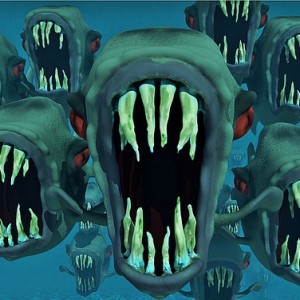The stigma surrounding Ebola poses a serious obstacle to efforts to calibrate the outbreak in Liberia, Sierra Leone, Guinea and Nigeria. As Reuters reports, the scale of the world’s worst Ebola outbreak has been concealed by families hiding infected loved ones in their homes and the existence of “shadow zones” that medics cannot enter, according to the World Health Organization (WHO). “As Ebola has no cure, some believe infected loved ones will be more comfortable dying at home,” the WHO statement said, concluding rather ominously, “frankly, no one knows when this outbreak of Ebola will end.”
The scale of the world’s worst Ebola outbreak has been concealed by families hiding infected loved ones in their homes and the existence of “shadow zones” that medics cannot enter, the World Health Organization (WHO) said on Friday.The U.N. agency issued a statement detailing why the outbreak in West Africa had been underestimated, following criticism that it had moved too slowly to contain the killer virus, now spreading out of control.Independent experts raised similar concerns a month ago that the contagion could be worse than reported because suspicious local inhabitants are chasing away health workers and shunning treatment.
More than 1400 deaths have been reported but the truth could be considerably worse…
Under-reporting of cases is a problem especially in Liberia and Sierra Leone. The WHO said it was now working with Medecins Sans Frontières (MSF) and the U.S. Centers for Disease Control and Prevention to produce “more realistic estimates”.The stigma surrounding Ebola poses a serious obstacle to efforts to calibrate the outbreak in Liberia, Sierra Leone, Guinea and Nigeria, which has claimed far more victims than any other episode of the disease that was first discovered nearly 40 years ago in the forests of central Africa.”As Ebola has no cure, some believe infected loved ones will be more comfortable dying at home,” the WHO statement said.”Others deny that a patient has Ebola and believe that care in an isolation ward – viewed as an incubator of the disease – will lead to infection and certain death. Most fear the stigma and social rejection that come to patients and families when a diagnosis of Ebola is confirmed.”Corpses are often buried without official notification, the WHO said, while an additional problem is the existence of numerous “shadow zones”, or rural villages where there are rumours of cases and deaths that cannot be investigated because of community resistance or lack of staff and transport.
The WHO is concerned..
“So with the evolving situation, with more cases reported, including in the three hot places – Guinea, Sierra Leone, and Liberia – the situation is not yet over,” Chaib said.
Chaib, asked whether the timeline meant that the United Nations health agency expected the epidemic now raging in Guinea, Liberia and Sierra Leone to continue into 2015, said: “Frankly, no one knows when this outbreak of Ebola will end.”
And things are getting more worrisome..
In a sign of spreading international alarm, Senegal, West Africa’s humanitarian hub, said it had blocked a regional U.N. aid plane from landing and was banning all further flights to and from countries affected by Ebola, potentially hampering the emergency response to the epidemic.





